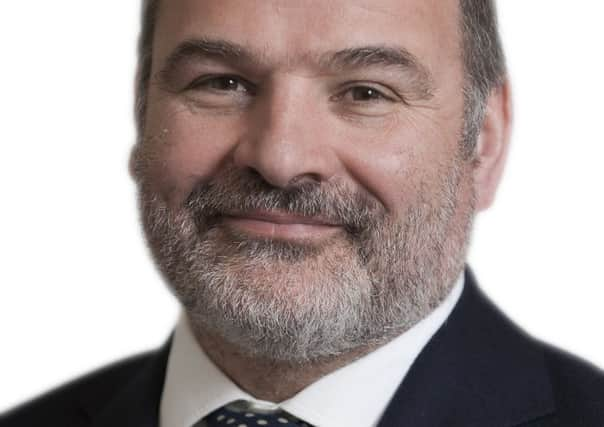Between the lines: Private equity firms still seeking deals


Most economists believe we will continue to see good growth and the International Monetary Fund has kept to its predicted 2.2 per cent rise in Britain’s GDP.
Among the wider concerns about faltering oil prices (a big issue for Scotland’s economic prosperity) and the slowdown of China’s economy, this overall upbeat assessment for the UK should give heart to Scottish businesses. But is there sufficient private equity (PE) funding available in the market to help those focused on growth?
Advertisement
Hide AdAdvertisement
Hide AdThe answer is yes. Scottish companies that are geared to attract PE investment are well served by both indigenous investors and wider UK/international operators. However, the type of PE investment is usually dependent on the stage a company is at in its growth cycle and its sector.
Businesses in the life sciences and technology sectors are attractive to PE and venture capital investors; while it’s no surprise that oil and gas services are currently a more unattractive proposition.
However, even in energy, PE investors, particularly those with a longer-term investment focus, are looking for suitable acquisition or investment targets.
The government-inspired Business Growth Fund (BGF) is a potential option, available to companies generating around £5 million or more in annual revenues. The BGF typically offers equity funding of between £2m and £10m for businesses with stable management and good growth prospects.
Business angels also remain an important component of the Scottish PE investment community. While the size of investment tends to be under the £1m mark, this can be an essential source of seed funding for early stage and start-up companies.
There are also a number of active private investment offices based in Scotland, such as Souter Investments, Murray Capital and Badenoch & Co, which, in addition to offering a higher level of PE funding to businesses, will acquire controlling equity stakes in companies with good growth prospects.
Traditional bank financing continues to be an option for financing growth. But alternative finance providers often have more appetite for transactions perceived as higher risk, although the borrowing costs for such help are likely to be higher.
While 2016 is set to be economically challenging, the prevailing view that the UK will see sustained growth is welcome. This, along with the availability of PE funding for qualifying businesses, presents a good opportunity for a number of Scottish companies to flourish.
• David Davidson is a corporate finance partner at law firm CMS